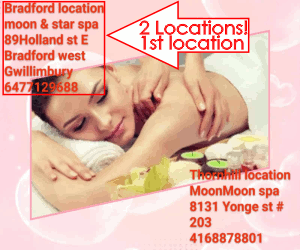P
Paul McAuley
Guest
A derelict building in South Liverpool has been given a new purpose after a community group transformed it. The neglected changing rooms facility, found in the grounds of the historic Sudley House estate, has been lovingly restored to a centre for therapies and well-being.
Originally the animal husbandry block, the space was used by sports teams playing on Sudley Fields until they fell into disrepair in the early 2000s.
Growing Sudley CIC, a not-for-profit community business that’s been working to revive the abandoned walled garden on the estate since 2017, successfully secured public funding and social investment to redevelop the derelict Liverpool City Council changing block.
ADVERTISEMENT
READ MORE: 'Rare opportunity' as 'spacious' apartment in converted church could be yours for £230k
READ MORE: Lost Liverpool nightclubs with the 'stickiest floors' people still remember
A major retrofit took place between 2020 and 2024, using ecological construction approaches and renewable energy systems to create a healthy, low-carbon building for the future. The building now runs on air source heat pump technology and - thanks to a Heritage Lottery funded volunteer training project - is clad with zero-carbon natural building material, Hempcrete.

Changing Rooms massage therapist Kathleen Charters in a treatment room -Credit:Jo Spragg
Lucy Dossor, co-founder of Growing Sudley, which also led two community crowd funders to complete the project, told the ECHO: “Politics, the pandemic, price rises, and shortages meant it was quite a journey to get the building completed in the end, but thanks to support from the community, we made it.”
ADVERTISEMENT
“Now that the doors are open, we’d love as many people as possible to come and experience what’s on offer here in this unique urban oasis, which is part of a long term community-driven aspiration to care for our greenspaces and environment, and empower people to support their wellbeing.”

Changing Rooms Counsellor Colette Kellgren-Parker in a talking therapy room -Credit:Jo Spragg
There are seven therapy rooms in total, and the building has “already become home to a thriving community” of high-quality holistic, functional and talking therapists.
The therapies currently available include: Thai massage, holistic bodywork, yoga therapy, physiotherapy, aromatherapy, craniosacral treatments, Ayurvedic consultation and talking therapies from a range of integrative counsellors and clinical psychologists.
Massage therapist, Kathleen Charters, who lives in the city centre, said: “Having practiced locally for 30 years, I find this a sensitively run space that caters to the wellbeing of my clients and myself. It’s nurturing and cocooning - my favourite place ever to offer therapies.”

Community members admiring the new inside
All income generated by The Changing Rooms will be reinvested into Growing Sudley CIC’s work to operate the thriving Therapeutic Garden next door to the building and provide activities for all ages to support health and well-being through nature.
The garden hosts a wide range of offers, including Forest School holiday clubs, toddler activities, and services for people of all ages with additional needs and disabilities.
Originally the animal husbandry block, the space was used by sports teams playing on Sudley Fields until they fell into disrepair in the early 2000s.
Growing Sudley CIC, a not-for-profit community business that’s been working to revive the abandoned walled garden on the estate since 2017, successfully secured public funding and social investment to redevelop the derelict Liverpool City Council changing block.
ADVERTISEMENT
READ MORE: 'Rare opportunity' as 'spacious' apartment in converted church could be yours for £230k
READ MORE: Lost Liverpool nightclubs with the 'stickiest floors' people still remember
A major retrofit took place between 2020 and 2024, using ecological construction approaches and renewable energy systems to create a healthy, low-carbon building for the future. The building now runs on air source heat pump technology and - thanks to a Heritage Lottery funded volunteer training project - is clad with zero-carbon natural building material, Hempcrete.
Changing Rooms massage therapist Kathleen Charters in a treatment room -Credit:Jo Spragg
Lucy Dossor, co-founder of Growing Sudley, which also led two community crowd funders to complete the project, told the ECHO: “Politics, the pandemic, price rises, and shortages meant it was quite a journey to get the building completed in the end, but thanks to support from the community, we made it.”
ADVERTISEMENT
“Now that the doors are open, we’d love as many people as possible to come and experience what’s on offer here in this unique urban oasis, which is part of a long term community-driven aspiration to care for our greenspaces and environment, and empower people to support their wellbeing.”
Changing Rooms Counsellor Colette Kellgren-Parker in a talking therapy room -Credit:Jo Spragg
There are seven therapy rooms in total, and the building has “already become home to a thriving community” of high-quality holistic, functional and talking therapists.
The therapies currently available include: Thai massage, holistic bodywork, yoga therapy, physiotherapy, aromatherapy, craniosacral treatments, Ayurvedic consultation and talking therapies from a range of integrative counsellors and clinical psychologists.
Massage therapist, Kathleen Charters, who lives in the city centre, said: “Having practiced locally for 30 years, I find this a sensitively run space that caters to the wellbeing of my clients and myself. It’s nurturing and cocooning - my favourite place ever to offer therapies.”
Community members admiring the new inside
All income generated by The Changing Rooms will be reinvested into Growing Sudley CIC’s work to operate the thriving Therapeutic Garden next door to the building and provide activities for all ages to support health and well-being through nature.
The garden hosts a wide range of offers, including Forest School holiday clubs, toddler activities, and services for people of all ages with additional needs and disabilities.



























































































